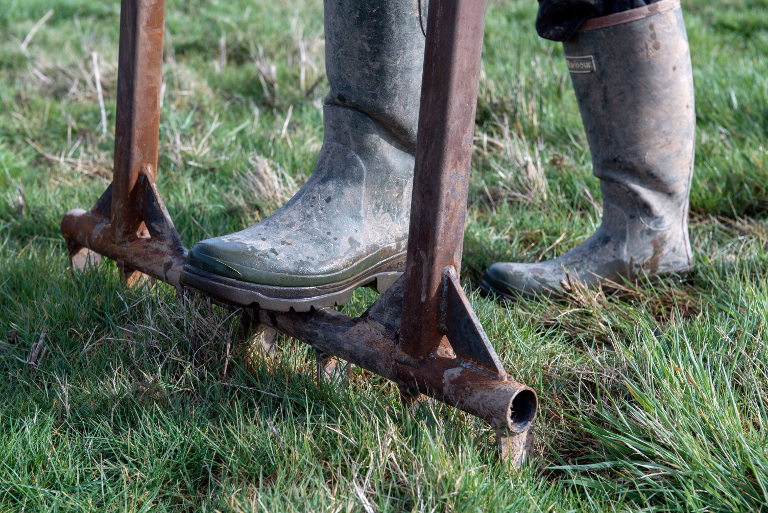The global pandemic has pulled into focus some of the more important components of our society. The recent ‘Clap for our Carers’ witnessed people across the UK coming out on to their streets to praise the National Health Service (NHS) and its workers. Despite social distancing, communities seem to have come more together. Sanitation workers, emergency services, delivery drivers and food producers amongst others have also been rightly recognised as vital to the functioning of our life.
This recognition is heartening. Food has also been a focal point for many, with many preparing for isolation by increasing their weekly shop, revealing the fragility of the just-in-time model employed by supermarkets.
The growth of food and farming has been increasingly distanced in our modern, (post) industrial society. This is in part due to the history of concentrated land ownership – with half of the UK’s land remaining in the hands of 1% of the population. It is also in part due to the genius of our technological world — and the belief in ‘Big solutions’ made possible with plentiful fossil fuels.
Currently, 72% of land in the UK is managed for agriculture: roughly about one-third arable and two-thirds pastoral. Most of which is dominated by an industrial paradigm. With the fruits of such great feats come serious consequences. The globalised food system means long supply chains, far off producers in distant countries suffering poor regulation and governance resulting in poor working conditions and exploitation.
Industrial agriculture, due to its scale, often relies on large machinery, large inputs of fossil fuel and large inputs of agrochemicals.
However there has always been a strain of thinking that has questioned this trajectory, and a system that fed the world well before the (ironically called) ‘green revolution’
With the pandemic forcing a change in perspective, is now a time to rethink other paradigms we take for granted yet hold dear: namely, food and farming?
Is it possible to re-introduce ways of growing that are resilient, kinder to the planet, involve more people and works with the grain of nature? ‘Agroecology’, the application of ecological principles to agricultural systems and practices, has the potential to do this.
The Ecological Land Cooperative (ELC) have been quietly working away at challenging the post WWII industrial agricultural system that had firmly taken root in the UK.
Since 2009 the ELC has developed a model to create low-impact, small farms for ecological agriculture. The manifold benefits of such land management can improve soil health, boost biodiversity and (re)invigorate rural communities whlst feeding local people with seasonal healthy food.
Supporting small-scale, ethically minded farmers from first steps to forks in the ground, the ELC is the only national organisation in England and Wales to offer residential farms for ecological land users. A member-led cooperative, the ELC challenges the twin barriers facing new entrants to farming: high land prices and legal permission (planning consent).
Oli Rodker, Site Development Director for the ELC, has been there since the beginning. From protest to parlaying with the political establishment, Oli helped envision and set up the ELC as a way to engage and grapple with the system rather than saying “No!” all the time. The concentration of land ownership has stifled rural economies, land skills and ecological food production. The ELC work to carve out a space to create these possibilities for new entrants to farming.
One of the ELC’s stewards, Cae Tan (who are Wales’ largest Community Support Agriculture veg box scheme) were initially seen as crazies during their setting up stage. They were told, repeatedly, that the five acre field earmarked for growing veg for the local area were “Shit” i.e. the very notion of growing veg being unfathomable let alone impossible. Those same fields now feed over 120 households every week with the food produced using natural, organic practices.
Small agro-ecological farms are cornerstones in reversing environmental ruin and can provide good, decent, fresh and local food.
The ELC has grown over the past six years successfully managing sites with a proven sustainable model. At the start of March the ELC launched a Community Share Investment Offer with the bold aim of increasing their number of small ecological farms.
Despite unprecedented times and fears around food security the Share Investment Offer has so far raised a thirs of the £400,000 target in three weeks.
A crisis like the one we are seeing now, along with the environmental crisis that is still going on, tells us we need to act urgently to improve how we manage land. ELC’s passionate and innovative farmers can do this while producing healthy food for local people.
The aim for the current Community Share Investment Offer is to raise up to £400,000 to develop more sites, with a target of creating 18 new small farms on six new sites by the end of 2023. By doing so, ecological agriculture can become a recognised and practical way to address the issues of climate change, rural underdevelopment and getting new entrants into farming.
The share offer is open for investment on the ethical investment platform Ethex, with a minimum investment amount of £500 and a projected return of 3% per annum. Find out more about how you can invest here.
https://www.ethex.org.uk/elc2020
Teaser photo credit: Danny Fitzpatrick





